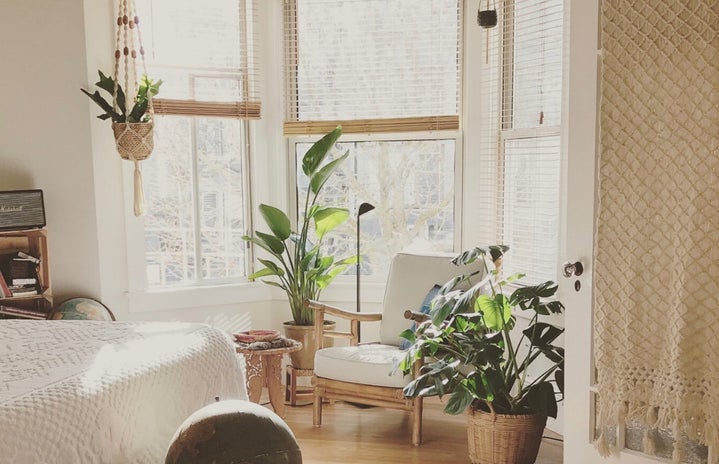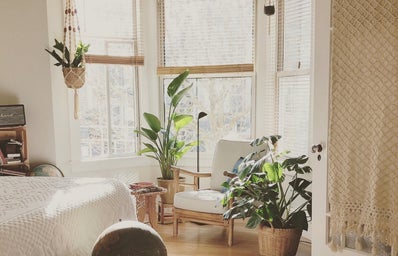For a lot of university students, houseplants are a crucial part of making student housing feel like home, and now that the days are getting shorter, plant babies are more important than ever for keeping us sane. But winter is the danger zone for house plants. Plants’ needs change in the winter, and it’s easy for novice plant-parents to make mistakes.
Here are some tips and tricks that can help you keep your plant babies alive and thriving this winter, which in turn will help all of you stay happy and healthy through an online winter term.
Correct sunlight
Obviously, plants need light to survive, though their light needs differ depending on the plant. In the winter, there’s often less light, which can impact a plant’s performance. But what some people don’t realize is that most plants go dormant in the winter: they tend to stop producing new leaves, preserving their energy. This can panic some people. They see no new growth, a couple of leaves die off and it can feel like the winter is killing their plants, but that’s not the case.
If you want your plants to thrive, find a spot where they get the correct amount of sun in the summer, and as the days get shorter feel free to make slight adjustments to accommodate for their light needs, but don’t stress too much if they get a little less light, unless they’re showing signs of stress. If you don’t see any new growth, that’s okay. Take the time to learn the difference between dormancy and insufficient light before you panic that your plant has stopped growing.
Correct temperature
Lots of indoor plants are tropical: they prefer warm temperatures and don’t like the cold. That means you need to be careful in the winter that your plants don’t get frostbite or die. This can factor into the previous topic about sunlight: while you can move your plant closer to the window to get more sun, you have to be careful that cold won’t seep through the window and cause damage to your plants.
Sleeping with the window open in the winter can also play a role. Normally if the environment is too cold for you to be comfortable, it’s too cold for your plants too (remember, you can bundle up in layers and blankets, but your plants can’t. Don’t let them get a chill).
Correct water
In general, it’s important to establish good watering habits for your plants. To start, do some research on what your plant needs, then learn how your specific plant baby behaves. Figure out how often your plant needs water in its specific conditions: things like the type of light, the humidity, the type of pot and more can all impact how often a plant needs to be watered.
Once that’s done, it’s time to put that knowledge to use. In the winter a plant will often require less water than normal (with less sunlight, the soil doesn’t dry out as quickly). That’s why it’s good to establish good habits early; if you know how your plant behaves when it’s thirsty, then you can use observation to water instead of getting into habits of watering on a weekly basis, and then overdoing it when the winter causes the plant to need less.
Fertilizer
Plants need food. That mostly comes from sunlight and water, but they also pull nutrients from the soil. For potted plants, the nutrients in the soil are limited, which is why you fertilize. Doing a bit of research will tell you what type of fertilizer will work best for your plants, and how often to fertilize. In the winter, you should fertilize less, but that doesn’t mean not at all.
Fertilizing your plants can help them to continue growing in the winter months. It’s not a promise, but if you want to keep your plant growing through the winter, fertilization can help provide them with enough nutrients and energy to keep them producing new growth when they normally go dormant.
Back off
As a smother-mother for my plants, this is the hardest thing for me to do, but it’s essential. In the winter, your plants will need you less. That’s the unfortunate fact of it. They will grow less, they will need less water and it’s very likely that some of their leaves will die. This doesn’t mean your plants are dying, and it’s your job as their parent to let your plants do their thing. Do what you can to keep them comfortable but leave them alone to rest and live their lives. Figure out what they need, instead of what you want to do to make yourself feel needed and involved in their lives.
Plants are living things that have needs, they’re not just decorations in your home. It’s your responsibility as a plant parent to learn what they require to thrive and to meet those needs. This list is just the start, but if you love your plants, and want them to live their best lives, just do some research and put in the work to make sure you’re being the best plant parent you can be.



